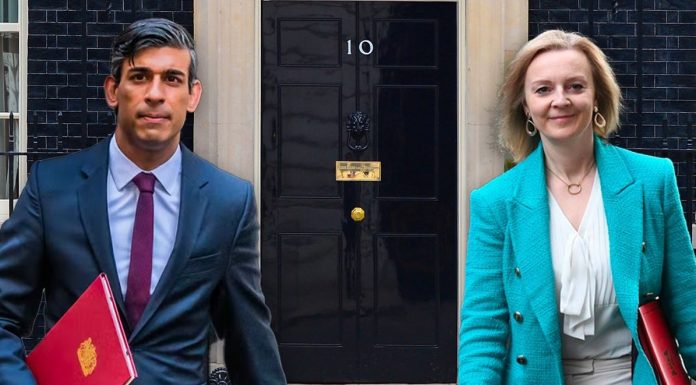By Jorge Jraissati, Director of Alumni For Liberty, an international network with over 10,000 youth leaders from 139 countries, and economist at IESE Business School.
All citizens, regardless of their country of origin, should have the right to banking in the European Union. However, this is not the case, and certainly immigrants are facing major challenges here.
Currently, millions of Latin American immigrants in the European Union face significant barriers in the financial sphere, as they are excluded from basic banking services, including the inability to open bank accounts.
This practice often occurs in countries such as Italy, Greece, and Spain. In these European Union member states, this financial hurdle is not limited solely to immigrants without legal status but persists even for individuals that have obtained employment and residency status.
For those immigrants that still do not have a defined legal status, the lack of access to a bank account becomes an additional obstacle on their path to legalization. In many cases, opening a bank account is an essential requirement for formalizing their legal status in the new country. This situation creates a vicious circle that hinders the full integration of these individuals into their communities.
Nigel Farage’s battle with Coutts exposed the scale and the cruelty of debanking. Thousands have been financially unpersoned just for holding unfashionable opinions. In 2024, we must defeat the scourge of corporate censorship, writes Toby Younghttps://t.co/1rhSDrn5CW
— spiked (@spikedonline) January 1, 2024
Anti-money laundering laws at the core of it all
The financial exclusion of migrants from the region where I come from, Latin America, but also from other places, results from the misapplication of a set of financial regulations known as “AML/CFT”, which stands for “anti-money laundering and combating the financing of terrorism” (AML/CFT). As the name suggests, these regulations were originally created to address money laundering.
Due to the expanding web of AML/CFT banking regulations, the financial system is progressively becoming less inclusive, especially against people from “high-risk” countries, like for example my own native Venezuela. These citizens encounter significant challenges to open bank accounts in the European Union. Simply because they come from riskier countries, banks are pushed to deny them bank accounts. As a result, millions of people are being excluded from traditional financial instruments, compelling them to engage with less secure financial tools.
Financially excluding these immigrants not only impacts the people directly involved but also has broader negative consequences for society as a whole. By financially marginalizing these citizens, these countries are condemning them to be unable to secure formal jobs and get housing through traditional means. It thereby deprives them of opportunities to become productive members of society, condemning them to the informal economy, and perpetuating unacceptable levels of poverty.
Anti money laundering laws, imo, currently hurt innocent users far more than the bad guys they're designed to stop.
This analysis clearly and carefully shows why that is.
Worth the slog to the end… https://t.co/JP4SyyDJpt— WPenner (@WPenner3) January 29, 2024
An unknown problem
Last week, I had the opportunity to go to the European Parliament in Brussels on behalf of my organization, Alumni For Liberty. We are a global network with over ten thousand young leaders in 139 countries. I was accompanied by two members of our network, Felix Hoose from Germany and Raul Carrasco from Spain. We arrived with the goal of discussing this issue with members of parliament, understanding their opinions on the matter, and presenting our reform proposal.
'What a bunch of idiots. Smug, complacent, idiots.'@Nigel_Farage reacts to American comedy show 'Saturday Night Live' laughing at Donald Trump after he used the word 'debanking'. pic.twitter.com/5OhQcA129w
— GB News (@GBNEWS) January 29, 2024
In our diplomatic mission, we found that most parliamentarians are not aware of this situation. They do not understand the origin of this problem or its magnitude. Fortunately, many of them expressed their intention to help us and support our ideas to address this issue.
With Alumni For Liberty, our proposal is clear: we advocate for a financial reform in the European Union that ensures the inclusion of all citizens, regardless of their country of origin. We are working with parliamentarians from different political groups as well as banking representatives to create specific legal mechanisms to ensure the financial inclusion of all immigrants in Europe.
This public policy is not just an act of justice but a contribution to the development and prosperity of the European Union member states. By ensuring that all citizens have access to basic financial services, we are building a solid foundation for a more inclusive, productive, and transparent society.
The financial inclusion of immigrants is a smart strategy to foster cohesive and prosperous societies. With this reform, we will take a step forward in making all immigrants self-sufficient and productive members of society, contributing to the economic performance and innovation targets of the European Union.
This article was originally published in Spanish by Hercules magazine.
Disclaimer: www.BrusselsReport.eu will under no circumstance be held legally responsible or liable for the content of any article appearing on the website, as only the author of an article is legally responsible for that, also in accordance with the terms of use.













